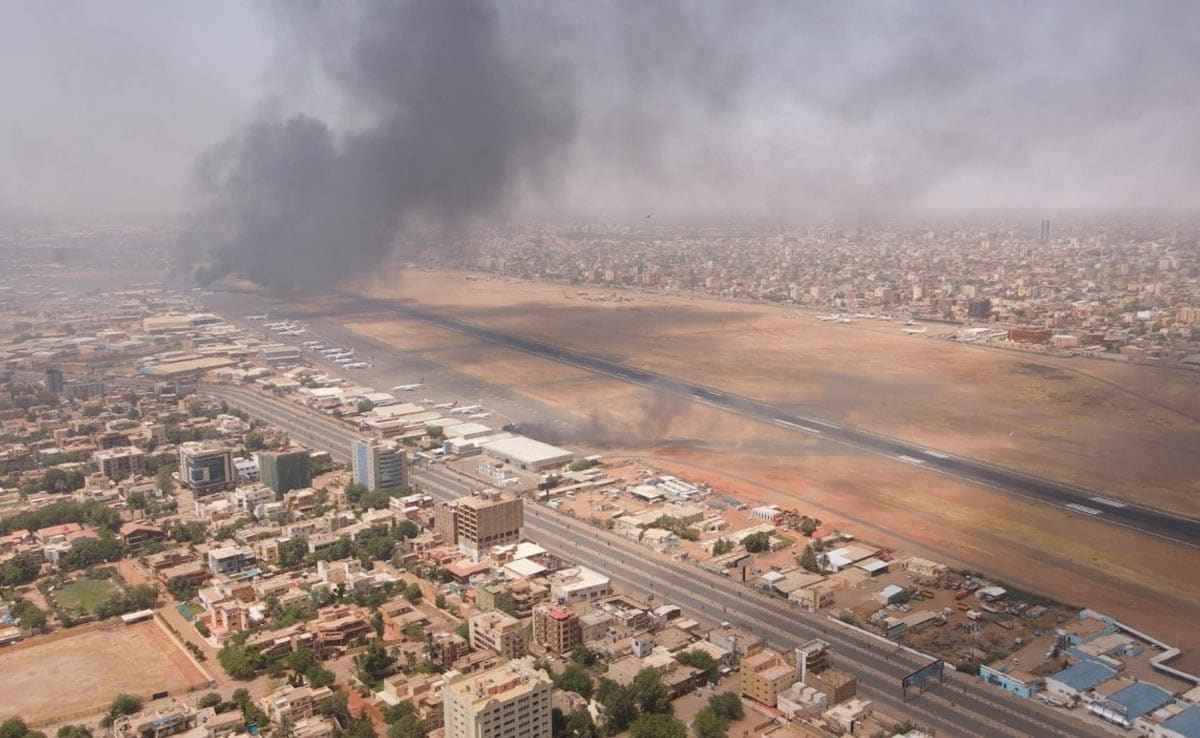After a weeklong fight erupted in the capital of Sudan between the two military factions of the country, over 400 people have been killed and thousands have been injured, according to the World Health Organization (WHO).
The clashes between the Sudanese army and the paramilitary groups, the Rapid Support Forces (RSF), who are at odds over the return to civilian rule, have not only claimed hundreds of lives but also hampered humanitarians from carrying out their lifesaving operations in the form of looting and attacks.
People in the thousands have already fled the city, although the evacuation processes have been extremely difficult to perform at this juncture. Therefore, the United Nations chief, Antonio Guterres, appealed on the 20th to observe a ceasefire for “at least three days”, and to mark an end to the month of Ramadan and Eid-al-Fitr celebrations.
The fighting must stop immediately. – Secretary-General @antonioguterres tells reporters, following a meeting on Sudan. Full transcript: https://t.co/ZQQxklpktf pic.twitter.com/V6P4Imgela
— UN Spokesperson (@UN_Spokesperson) April 20, 2023
Clearly, celebrations are different everywhere.
In addition, the Director-General of the WHO, expressing concern over reports of occupying healthcare facilities, stressed that such attacks on healthcare infrastructure are serious violations of international law.
“The lack of safe access to electricity, food, water, personnel, and diminishing medical supplies are making it nearly impossible for many health facilities to function at the exact time when there are thousands of injured people in need of urgent care,” he added.
What has led to fights between self-serving armies and militia forces?
A battle broke out between the self-serving Sudan Armed Forces (SAF) and paramilitary force, the Rapid Support Forces (RSF), for supremacy and control of the country, completely divorced from the aims of the 2018–19 revolution.
The question is who controls the country, and the crunching economy becomes a vital factor in the region’s dynamics.
Regional dynamics
This warfare on the streets is ringing alarm bells internationally, given that Sudan is not only the third-largest country in Africa but also a vast and vital geographical region with unstable borders.
Sharing borders with seven different countries—Chad, Libya, Egypt, Eritrea, the Central African Republic, South Sudan, and Ethiopia—the country faces security challenges and influences the political situation.
A strategic location in terms of agricultural wealth is Sudan’s border with the Red Sea and the Horn of Africa. Therefore, it becomes the source of attraction for the power dynamic in the region.
Bordering nations like Ethiopia, Chad, and South Sudan have unstable histories and have been affected by political upheavals and ethnic conflicts.
Furthermore, the refugee issue persists since Sudan continues to receive refugees from neighboring nations like South Sudan, Eritrea, and Ethiopia. The UN estimates show that as of July 31, over 59,000 people had crossed the border into Sudan since the conflict erupted in the northern region of Ethiopia in November 2020.
Therefore, political or economic upheavals or conflicts happening in Khartoum, the capital of the country, are bound to have ripple effects in the neighbouring regions. Specifically in the fragile parts, if not the whole continent.
In addition, the present circumstances pose the threat of developing from more or less a straightforward power struggle into a civil war.
Conflict jeopardizes humanitarian needs
Although the warring parties agreed to a 72-hour ceasefire, residents in Khartoum reported gunfire.
The UN humanitarian office had indicated that “an increasing number of people are running out of food, water, and power, including in Khartoum.” According to the UN, the country has suffered a steady rise in food insecurity indicators.
The estimates postulate that nearly a quarter of the population faced an acute hunger crisis between June and September, and the capital of the nation was among the most affected regions.
Sudan’s dependence on wheat imports from Russia and Ukraine over the past few years and current geopolitical developments further aggravate food insecurity. Furthermore, the influx of refugees and migrants hampers overall food security.
Furthermore, the prevailing situation forced the World Food Programme (WFP) to halt its operations as violence on the streets of the national capital prevented humanitarians from performing their duties.

